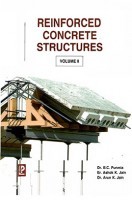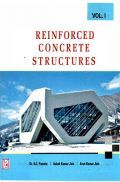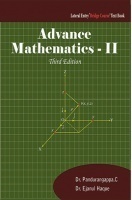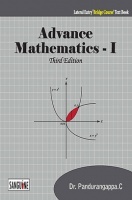About The Book Limit State Design Of Reinforced Concrete
Book Summary:
This substantially revised second edition takes into account the provisions of the revised Indian Code of practice for Plain and Reinforced Concrete IS 456 : 2000. It also provides additional data on detailing of steel to make the book more useful to practicing engineers. The chapter on Limit State of Durability for Environment has been completely revised and the new provisions of the code such as those for design for shear in reinforced concrete, rules for shearing main steel in slabs, lateral steel in columns, and stirrups in beams have been explained in detail in the new edition.
This book is recommended in Assam Engineering College, Assam, NIT Silchar, West Bengal University of Technology (WBUT) for B.Tech.
This comprehensive and systematically organized book is intended for undergraduate students of Civil Engineering, covering the first course on Reinforced Concrete Design and as a reference for the practicing engineers. Besides covering IS 456 : 2000, the book also deals with the British and US Codes. Advanced topics of IS 456 : 2000 have been discussed in the companion volume Advanced Reinforced Concrete Design (also published by Prentice-Hall of India). The two books together cover all the topics in IS 456 : 2000 and many other topics which are so important in modern methods of design of reinforced concrete.
Table of Contents:
List of Illustrations. List of Tables. Foreword. Preface. Preface to the First Edition. Acknowledgements. Introduction to IS 456 (2000). Introduction to Limit State Design. Methods of Design of Concrete Structures. Partial Safety Factors in Limit State Design. Limit State of Durability of Reinforced Concrete to Environment. Theory of Singly Reinforced Members in Bending (Limit State of CollapseFlexure). Examples in Design and Analysis of Singly Reinforced Beams. Design of Doubly Reinforced Beams. Limit State of Collapse in Shear (Design for Shear). Design of Flanged Beams. Design of Bending Members for Serviceability Requirements of Deflection and Cracking. Bond, Anchorage, Development Lengths and Splicing. Design of One-way Slabs. Design of Two-way Slabs. Limit State of Collapse in Compression Design of Axially Loaded Short Columns. Design of Short Columns with Moments. Effective Length of Columns. Design of R.C. Slender Columns. Design of Concrete Walls Carrying Vertical Loads. Design for Torsion. Design of R.C. Members in Tension. Design of Staircases. Design of Corbels, Brackets and Nibs.
Design of Footings, Pedestals and Pile Caps. AppendicesA: Working Stress Method of Design. B: General Data for Designs. C: Formulae for Some Charts and Tables in IS 456. D: Standard Method of Detailing R.C. Beams and Slabs. Index.


















